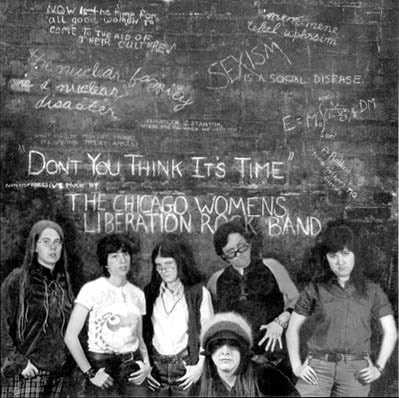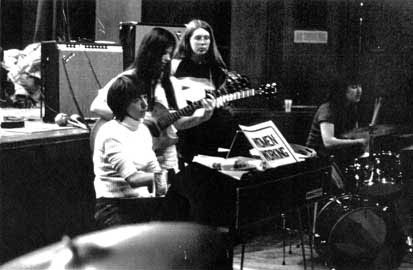Profile

Naomi Weisstein
Birth:
1939
Death:
2015
Training Location(s):
PhD, Harvard University (1964)
BA, Wellesley College (1961)
Primary Affiliation(s):
University of Chicago
Loyola University
State University of New York (SUNY) at Buffalo
Career Focus:
Feminist psychology; vision; neuroscience.
Biography
Naomi Weisstein was born in New York to parents Mary Wenk and Samuel Weisstein. She described herself as having been raised within a tradition of radical Jewish activism. Her mother was particularly influential to Weisstein while growing up. She was a self-identified feminist and carried with her a sense of autonomy and individuality that was not common in those times. Weisstein was imbued with this same spirit, and found herself being drawn into a world that was out of step with traditional femininity - the world of science. However, she did find role models, such as Rosalind Franklin, whom she could emulate. Weisstein graduated from the Bronx High School of Science and went on to Wellesley College. She earned her BA from Wellesley in 1961, graduating as a member of the Phi Beta Kappa honor society. Weisstein then moved onto Harvard University to begin her doctoral studies.
It was at Harvard that Weisstein first experienced significant, overt sex discrimination. On the first day, Weisstein and the other female graduate students were told by the chair of the department that they didn't really belong in graduate school - that they should be wives and mothers instead. Later, when she had begun her dissertation research, she was told that she couldn't do her vision research on the equipment at Harvard because the male students needed it more. Also, she was a girl and would likely break the expensive machinery. Instead, Weisstein was forced to do her research at Yale where she was given access to the necessary equipment. While in New Haven, she met two individuals who would become important figures in her life: her friend and future collaborator, photographer Virginia Blaisdell; and her future husband and collaborator, the radical New Left historian, Jesse Lemisch. Despite the trials she faced at Harvard, she graduated with her Ph.D. in 1964 and moved on to a challenging post-doctoral position in mathematical biology at the University of Chicago.
In Chicago, Weisstein's experiences began to change and shape the direction of her career. When she left her post-doctoral position in 1966, she found that she had difficulty obtaining a job. Her husband, Lemisch, was working as a professor at the University of Chicago, but she could not get a position there due to anti-nepotism rules. However, she was able to negotiate with Loyola University for a faculty position. At this stage in her career, Weisstein was an outspoken feminist. In 1968, she published her classic article Psychology Constructs the Female (PCF), where she criticized the field of psychology for failing to understand women: "Psychology has nothing to say about what women are really like, what they need and what they want, especially because psychology does not know" (1993a, p. 197). Her criticisms stemmed from psychology's over-reliance on theory without evidence (specifically clinical psychology and psychiatry), its lack of appreciation for social context, and the prevalence of biologically-based theories.
Weisstein also used this time to become more involved with the New Left and women's liberation movements. In 1969, she helped to found the Chicago Women's Liberation Union (CWLU), a group devoted to advancing women's rights, gay rights, and improving women's lives generally. In order to help spread their message, Weisstein used her skills as a cartoonist, and stand-up comedian. Additionally, she founded the Chicago Women's Liberation Rock Band (CWLRB). The band, which was active from 1970-1973, produced an album in 1972 called Mountain Moving Day. It featured two songs written by Weisstein, the title track, and Papa, Don't Lay That Shit On Me. It also had a track from her stand-up comedy routine, Rape and Other Big Jokes, which was often performed in conjunction with the music. In 2005, the CD was re-released under the title Papa, Don't Lay That Shit On Me, and featured tracks from Le Tigre, who cite the CWLRB as an influence in their music. In fact, it has been suggested that the CWLRB laid the groundwork for other explicitly feminist, all-girl bands, such as Bikini Kill, and folk-singers like Ani DiFranco.
Despite all of her varied contributions, it is PCF in particular that helped to define Weisstein's status in psychology. The article has been reprinted in dozens of places, and has been cited as a defining moment in second-wave feminism. Several feminist psychologists have discussed PCF as their awakening to feminism. In 1993, the journal Feminism & Psychology organized a festschrift for Weisstein and the article. The seminal piece was reprinted, alongside commentary by other feminist psychologists, such as Rhoda Unger and Sandra Bem. The issue also included a new article by Weisstein: Power, Resistance, and Science: A Call for a Revitalized Feminist Psychology. In it, she reflected on the reception of PCF, and the state of feminist psychology. She bemoaned the turn to post-modernism, claiming that it is an ultimately conservative stance because it relies on relativism and a rejection of a universal truth. Weisstein says: "I believe that current feminist rejection of universal truth is a political choice. Radical and confrontational as the feminist challenge to science may appear, it is, in fact, a deeply conservative retreat" (1993b, p. 243). She concluded by issuing a challenge: "Let us return to an activist, challenging, badass, feminist psychology" (1993b, p. 244).
Despite being bed-ridden with chronic fatigue syndrome since 1983, Weisstein continued to participate passionately in psychology and with the Chicago Women's Liberation Union Herstory. She continued to challenge psychologists - mainstream and feminist - to step outside of their accepted dogmas and use the discipline to create a more humane world. She continued the fight until she died on March 26, 2015 from ovarian cancer.
by Laura Ball (2010)
Updated (2015)
To cite this article, see Credits
Selected Works
By Naomi Weisstein
Abod, S., & Weisstein, N. (1996). In the realm of utopian desire: The Chicago Women's Liberation Rock Band [Video]. United States: Chicago Women's Liberation Union.
Akiko, Y., & Weisstein, N. (1972). Mountain moving day [Recorded by the Chicago Women's Liberation Rock Band]. On Papa, don't lay that shit on me: The Chicago Women's Liberation Rock Band and the New Haven women's Liberation Rock Band, Le Tigre and a caste of millions [CD]. Burlington, MA: Rounder Records. (Recorded in 2005; Originally recorded in 1972. On Mountain moving day [CD]. Cambridge, MA: Rounder Records.)
Blaisdell, V., & Weisstein, N. (1972). Papa, don't lay that shit on me [Recorded by the Chicago Women's Liberation Rock Band]. On Papa, don't lay that shit on me: The Chicago Women's Liberation Rock Band and the New Haven women's Liberation Rock Band, Le Tigre and a caste of millions [CD]. Burlington, MA: Rounder Records. (Recorded in 2005; Originally recorded in 1972. On Mountain moving day [CD]. Cambridge, MA: Rounder Records.)
Chicago Women's Liberation Rock Band. (1972). Who we are and how we got here [liner notes]. On Mountain moving day [CD]. Cambridge, MA: Rounder Records. (Also reprinted in the 2005 re-release)
Goldfield, E., Munaker, S., & Weisstein, N. (1969). A woman is a sometime thing, or cornering capitalism by removing 51% of its commodities: A collective effort.
Weisstein, N. (1968). Kinder, kuche, kirche as scientific law: Psychology constructs the female [revised and expanded version]. Boston, MA: New England Free Press.
Weisstein, N. (1971). Psychology constructs the female. Journal of Social Education, 35, 362-373.
Weisstein, N. (1977). "How can a little girl like you teach a great big class of men?" the chairman said, and the other adventures of a woman in science. In S. Ruddick & P. Daniels (Eds.), Working it out: 23 writers, artists, scientists, and scholars talk about their lives and work (pp. 241-250). New York, NY: Pantheon Books.
Weisstein, N. (1993a). Psychology constructs the female: Or, the fantasy life of the male psychologist (wish some attention to the fantasies of his friends, the male biologist and the male anthropologist). Feminism and Psychology, 3, 195-210.
Weisstein, N. (1993b). Power, resistance, and science: A call for a revitalized feminist psychology. Feminism & Psychology, 3, 239-245.
Weisstein, N. (1998). Days of celebration and resistance: The Chicago Women's Liberation Rock Band, 1970-1973. In R. B. DuPlessis & A. Snitow (Eds.), The feminist memoir project: Voices from women's liberation (pp. 350-361). New York, NY: Three Rivers Press.
Weisstein, N. (2003). Adventures of a woman in science. In O. Frey (Ed.), Autobiographical writings across disciplines: A reader (pp. 397-413). Durham, NC: Duke University Press.
Weisstein, N., Blaisdell, V. & Lemisch, J. (1975). The Godfathers: Freudians, Marxists, and the scientific and political protection societies. New Haven, CT: Belladonna Publishing.
About Naomi Weisstein
Austin, S. (n.d.). Naomi Weisstein (b. 1939). The Feminist Psychologist.
Bem, S. L. (1993). Is there a place in psychology for a feminist analysis of the social context? Feminism and Psychology, 3, 230-234.
Baumgardner, J. (2005). Aural history: The politics of feminist rock [liner notes]. On Papa, don't lay that shit on me: The Chicago Women's Liberation Rock Band and the New Haven women's Liberation Rock Band, Le Tigre and a caste of millions [CD]. Burlington, MA: Rounder Records.
Grover, K. (2021). Rocking the revolution: The Chicago Women's Liberation Rock Band and the politics of feminist rock and roll. Signs: Journal of Women in Culture and Society, 46, 489-512.
Lemisch, J., & Weisstein, N. (1997). Remarks on Naomi Weisstein.
Reser, H. (2004). "One by one you're gonna know our power": The Chicago Women's Liberation Rock Band and the politics of cultural transformation.
Rutherford, A., Vaughn-Blount, K., & Ball, L. C. (2010). Responsible opposition, disruptive voices: Science, social change, and the history of feminist psychology. Psychology of Women Quarterly, 34, 460-473.
Ball. L. C. & Rutherford, A. (2016). Naomi Weisstein (1939-2015). American Psychologist, 71, 77.
Spin Staff (2005). Artist of the day: Chicago Women's Liberation Rock Band Artist of the day: Chicago Women's Liberation Rock Band. Spin Magaizine.
Unger, R. K. (1993). The personal is paradoxical: Feminists construct psychology. Feminism and Psychology, 3, 211-218.
Photo Gallery





Naomi Weisstein
Birth:
1939
Death:
2015
Training Location(s):
PhD, Harvard University (1964)
BA, Wellesley College (1961)
Primary Affiliation(s):
University of Chicago
Loyola University
State University of New York (SUNY) at Buffalo
Career Focus:
Feminist psychology; vision; neuroscience.
Biography
Naomi Weisstein was born in New York to parents Mary Wenk and Samuel Weisstein. She described herself as having been raised within a tradition of radical Jewish activism. Her mother was particularly influential to Weisstein while growing up. She was a self-identified feminist and carried with her a sense of autonomy and individuality that was not common in those times. Weisstein was imbued with this same spirit, and found herself being drawn into a world that was out of step with traditional femininity - the world of science. However, she did find role models, such as Rosalind Franklin, whom she could emulate. Weisstein graduated from the Bronx High School of Science and went on to Wellesley College. She earned her BA from Wellesley in 1961, graduating as a member of the Phi Beta Kappa honor society. Weisstein then moved onto Harvard University to begin her doctoral studies.
It was at Harvard that Weisstein first experienced significant, overt sex discrimination. On the first day, Weisstein and the other female graduate students were told by the chair of the department that they didn't really belong in graduate school - that they should be wives and mothers instead. Later, when she had begun her dissertation research, she was told that she couldn't do her vision research on the equipment at Harvard because the male students needed it more. Also, she was a girl and would likely break the expensive machinery. Instead, Weisstein was forced to do her research at Yale where she was given access to the necessary equipment. While in New Haven, she met two individuals who would become important figures in her life: her friend and future collaborator, photographer Virginia Blaisdell; and her future husband and collaborator, the radical New Left historian, Jesse Lemisch. Despite the trials she faced at Harvard, she graduated with her Ph.D. in 1964 and moved on to a challenging post-doctoral position in mathematical biology at the University of Chicago.
In Chicago, Weisstein's experiences began to change and shape the direction of her career. When she left her post-doctoral position in 1966, she found that she had difficulty obtaining a job. Her husband, Lemisch, was working as a professor at the University of Chicago, but she could not get a position there due to anti-nepotism rules. However, she was able to negotiate with Loyola University for a faculty position. At this stage in her career, Weisstein was an outspoken feminist. In 1968, she published her classic article Psychology Constructs the Female (PCF), where she criticized the field of psychology for failing to understand women: "Psychology has nothing to say about what women are really like, what they need and what they want, especially because psychology does not know" (1993a, p. 197). Her criticisms stemmed from psychology's over-reliance on theory without evidence (specifically clinical psychology and psychiatry), its lack of appreciation for social context, and the prevalence of biologically-based theories.
Weisstein also used this time to become more involved with the New Left and women's liberation movements. In 1969, she helped to found the Chicago Women's Liberation Union (CWLU), a group devoted to advancing women's rights, gay rights, and improving women's lives generally. In order to help spread their message, Weisstein used her skills as a cartoonist, and stand-up comedian. Additionally, she founded the Chicago Women's Liberation Rock Band (CWLRB). The band, which was active from 1970-1973, produced an album in 1972 called Mountain Moving Day. It featured two songs written by Weisstein, the title track, and Papa, Don't Lay That Shit On Me. It also had a track from her stand-up comedy routine, Rape and Other Big Jokes, which was often performed in conjunction with the music. In 2005, the CD was re-released under the title Papa, Don't Lay That Shit On Me, and featured tracks from Le Tigre, who cite the CWLRB as an influence in their music. In fact, it has been suggested that the CWLRB laid the groundwork for other explicitly feminist, all-girl bands, such as Bikini Kill, and folk-singers like Ani DiFranco.
Despite all of her varied contributions, it is PCF in particular that helped to define Weisstein's status in psychology. The article has been reprinted in dozens of places, and has been cited as a defining moment in second-wave feminism. Several feminist psychologists have discussed PCF as their awakening to feminism. In 1993, the journal Feminism & Psychology organized a festschrift for Weisstein and the article. The seminal piece was reprinted, alongside commentary by other feminist psychologists, such as Rhoda Unger and Sandra Bem. The issue also included a new article by Weisstein: Power, Resistance, and Science: A Call for a Revitalized Feminist Psychology. In it, she reflected on the reception of PCF, and the state of feminist psychology. She bemoaned the turn to post-modernism, claiming that it is an ultimately conservative stance because it relies on relativism and a rejection of a universal truth. Weisstein says: "I believe that current feminist rejection of universal truth is a political choice. Radical and confrontational as the feminist challenge to science may appear, it is, in fact, a deeply conservative retreat" (1993b, p. 243). She concluded by issuing a challenge: "Let us return to an activist, challenging, badass, feminist psychology" (1993b, p. 244).
Despite being bed-ridden with chronic fatigue syndrome since 1983, Weisstein continued to participate passionately in psychology and with the Chicago Women's Liberation Union Herstory. She continued to challenge psychologists - mainstream and feminist - to step outside of their accepted dogmas and use the discipline to create a more humane world. She continued the fight until she died on March 26, 2015 from ovarian cancer.
by Laura Ball (2010)
Updated (2015)
To cite this article, see Credits
Selected Works
By Naomi Weisstein
Abod, S., & Weisstein, N. (1996). In the realm of utopian desire: The Chicago Women's Liberation Rock Band [Video]. United States: Chicago Women's Liberation Union.
Akiko, Y., & Weisstein, N. (1972). Mountain moving day [Recorded by the Chicago Women's Liberation Rock Band]. On Papa, don't lay that shit on me: The Chicago Women's Liberation Rock Band and the New Haven women's Liberation Rock Band, Le Tigre and a caste of millions [CD]. Burlington, MA: Rounder Records. (Recorded in 2005; Originally recorded in 1972. On Mountain moving day [CD]. Cambridge, MA: Rounder Records.)
Blaisdell, V., & Weisstein, N. (1972). Papa, don't lay that shit on me [Recorded by the Chicago Women's Liberation Rock Band]. On Papa, don't lay that shit on me: The Chicago Women's Liberation Rock Band and the New Haven women's Liberation Rock Band, Le Tigre and a caste of millions [CD]. Burlington, MA: Rounder Records. (Recorded in 2005; Originally recorded in 1972. On Mountain moving day [CD]. Cambridge, MA: Rounder Records.)
Chicago Women's Liberation Rock Band. (1972). Who we are and how we got here [liner notes]. On Mountain moving day [CD]. Cambridge, MA: Rounder Records. (Also reprinted in the 2005 re-release)
Goldfield, E., Munaker, S., & Weisstein, N. (1969). A woman is a sometime thing, or cornering capitalism by removing 51% of its commodities: A collective effort.
Weisstein, N. (1968). Kinder, kuche, kirche as scientific law: Psychology constructs the female [revised and expanded version]. Boston, MA: New England Free Press.
Weisstein, N. (1971). Psychology constructs the female. Journal of Social Education, 35, 362-373.
Weisstein, N. (1977). "How can a little girl like you teach a great big class of men?" the chairman said, and the other adventures of a woman in science. In S. Ruddick & P. Daniels (Eds.), Working it out: 23 writers, artists, scientists, and scholars talk about their lives and work (pp. 241-250). New York, NY: Pantheon Books.
Weisstein, N. (1993a). Psychology constructs the female: Or, the fantasy life of the male psychologist (wish some attention to the fantasies of his friends, the male biologist and the male anthropologist). Feminism and Psychology, 3, 195-210.
Weisstein, N. (1993b). Power, resistance, and science: A call for a revitalized feminist psychology. Feminism & Psychology, 3, 239-245.
Weisstein, N. (1998). Days of celebration and resistance: The Chicago Women's Liberation Rock Band, 1970-1973. In R. B. DuPlessis & A. Snitow (Eds.), The feminist memoir project: Voices from women's liberation (pp. 350-361). New York, NY: Three Rivers Press.
Weisstein, N. (2003). Adventures of a woman in science. In O. Frey (Ed.), Autobiographical writings across disciplines: A reader (pp. 397-413). Durham, NC: Duke University Press.
Weisstein, N., Blaisdell, V. & Lemisch, J. (1975). The Godfathers: Freudians, Marxists, and the scientific and political protection societies. New Haven, CT: Belladonna Publishing.
About Naomi Weisstein
Austin, S. (n.d.). Naomi Weisstein (b. 1939). The Feminist Psychologist.
Bem, S. L. (1993). Is there a place in psychology for a feminist analysis of the social context? Feminism and Psychology, 3, 230-234.
Baumgardner, J. (2005). Aural history: The politics of feminist rock [liner notes]. On Papa, don't lay that shit on me: The Chicago Women's Liberation Rock Band and the New Haven women's Liberation Rock Band, Le Tigre and a caste of millions [CD]. Burlington, MA: Rounder Records.
Grover, K. (2021). Rocking the revolution: The Chicago Women's Liberation Rock Band and the politics of feminist rock and roll. Signs: Journal of Women in Culture and Society, 46, 489-512.
Lemisch, J., & Weisstein, N. (1997). Remarks on Naomi Weisstein.
Reser, H. (2004). "One by one you're gonna know our power": The Chicago Women's Liberation Rock Band and the politics of cultural transformation.
Rutherford, A., Vaughn-Blount, K., & Ball, L. C. (2010). Responsible opposition, disruptive voices: Science, social change, and the history of feminist psychology. Psychology of Women Quarterly, 34, 460-473.
Ball. L. C. & Rutherford, A. (2016). Naomi Weisstein (1939-2015). American Psychologist, 71, 77.
Spin Staff (2005). Artist of the day: Chicago Women's Liberation Rock Band Artist of the day: Chicago Women's Liberation Rock Band. Spin Magaizine.
Unger, R. K. (1993). The personal is paradoxical: Feminists construct psychology. Feminism and Psychology, 3, 211-218.




